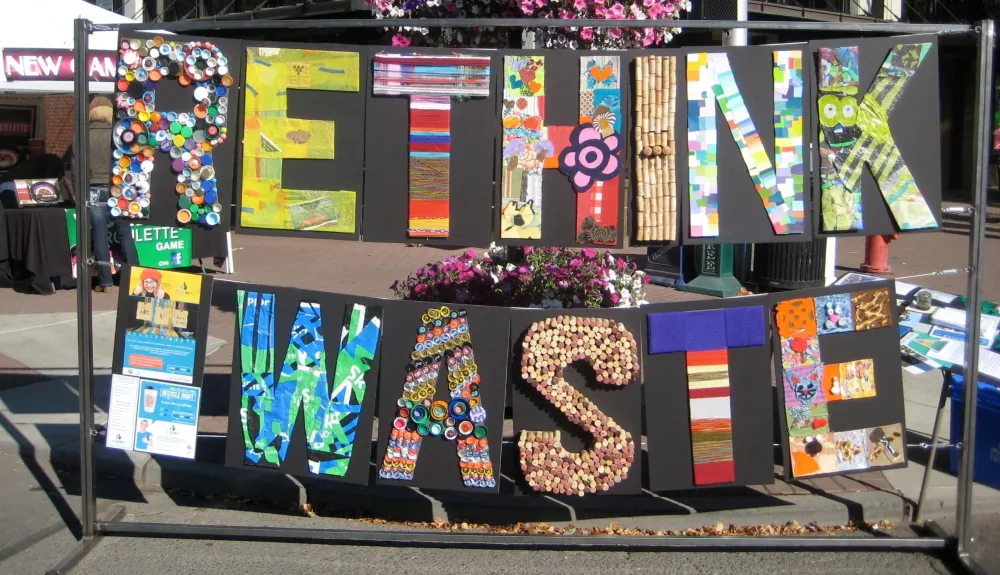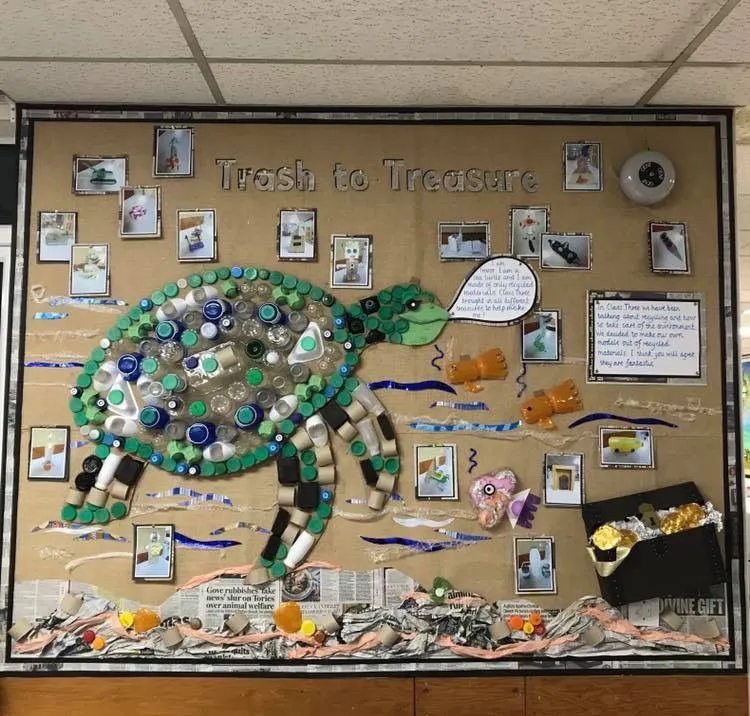Your cart is empty
Old School RuneScape Should Recycle Junk: A Sustainable Future for Gielinor

Warning: Undefined variable $post in /home/osrsmoneymaking.guide/public_html/wp-content/themes/kadence/functions.php on line 391
Warning: Attempt to read property "ID" on null in /home/osrsmoneymaking.guide/public_html/wp-content/themes/kadence/functions.php on line 391
Old School RuneScape (OSRS) is a beloved MMORPG that thrives on its nostalgic gameplay, intricate mechanics, and vibrant community. However, one aspect of the game that has remained largely untouched is its handling of “junk” items—those low-value, often useless drops that clutter inventories and banks. From burnt fish to broken armor, these items serve little purpose beyond vendor fodder or the occasional niche use. Imagine if OSRS introduced a recycling system for junk items, transforming them into something useful while promoting sustainability in Gielinor. In this blog post, we’ll explore why OSRS should recycle junk, how it could work, and the benefits it would bring to players and the game’s economy. Let’s dive into this eco-friendly proposal for RuneScape’s old-school world.
The accumulation of junk items in OSRS is an overlooked issue that affects both newbies and veterans. Whether it’s a burnt lobster from a misclick or a broken arrow from ranging, these items pile up, forcing players to either drop them, sell them for peanuts, or hoard them in banks. A recycling system could address this inefficiency, aligning with modern gaming trends that prioritize resource management and environmental awareness.
The Problem with Junk Items
Junk items like tattered cloth, ashes, or damaged armor have minimal value. Selling them to general stores yields negligible gold, and dropping them feels wasteful. For free-to-play (F2P) players especially, where every coin counts, this creates a frustrating loop of inventory management without meaningful rewards.
Modernizing OSRS with Sustainability
While OSRS prides itself on nostalgia, it’s not afraid to evolve—think of updates like the Grand Exchange or Wilderness Rejuvenation. Recycling junk could be a subtle yet impactful addition, reflecting real-world sustainability efforts while staying true to the game’s medieval roots.
How Junk Recycling Could Work in OSRS

Implementing a recycling system doesn’t need to overhaul OSRS’s core mechanics. It could integrate seamlessly with existing features like skills, NPCs, and locations, offering players a practical way to repurpose junk. Here’s a breakdown of how it might function.
Recycling Stations Across Gielinor
Introduce “Recycling Stations” in key hubs like Varrock, Falador, and Lumbridge. These could be manned by new NPCs—perhaps eco-conscious craftsmen or alchemists—who accept junk items in exchange for rewards. Think of it as an extension of the general store, but with a purpose beyond dumping goods.
Skill-Based Recycling Mechanics
Tie recycling to existing skills like Crafting, Smithing, or Invention (if Jagex ever adapts it for OSRS). For example:
- Crafting: Turn tattered cloth into bandages or low-tier cosmetic gear.
- Smithing: Melt down broken armor into metal scraps for forging.
- Cooking: Compost burnt food into fertilizer for Farming.
This would give junk a second life while rewarding players for training skills.
Reward Tiers for Recycled Junk
Rewards could scale based on the volume or type of junk recycled. A possible reward structure might look like this:
| Junk Item | Recycling Reward | Skill XP Gained |
|---|---|---|
| Burnt Fish | 5-10 Compost Points | 10 Farming XP |
| Broken Arrow | 2-5 Fletching Mats | 15 Fletching XP |
| Damaged Armor | 10-20 Metal Scraps | 20 Smithing XP |
These rewards could be redeemed for consumables, cosmetics, or even small amounts of gold, keeping the system balanced.
Benefits of Recycling Junk in OSRS
A recycling system wouldn’t just clear inventory space—it could revitalize gameplay, boost the economy, and enhance community engagement. Here’s why it’s a win-win for Gielinor.
Improved Inventory Management
For players grinding Slayer or skilling, junk drops clog up precious slots. Recycling offers a productive alternative to dropping items, reducing the tedium of constant trips to the bank or general store.
Economic Balance and Stability
By converting junk into useful resources, OSRS could subtly influence the economy without flooding it with gold. Metal scraps or compost points, for instance, would support skilling without devaluing high-tier items like rune armor or dragon bones.
Engaging Low-Level Players
F2P and low-level players often struggle to make gold early on. Recycling could provide a steady trickle of resources or XP, giving them a sense of progress while they work toward bigger goals like membership or combat training.
Potential Challenges and Solutions
No update is without hurdles, and recycling junk in OSRS would face some pushback. Let’s address the main concerns and how Jagex could tackle them.
Balancing Rewards to Avoid Inflation
Too-generous rewards could destabilize the economy, driving down the value of raw materials. To counter this, Jagex could cap daily recycling limits or tie rewards to a points system, ensuring gradual rather than instant gains.
Preserving OSRS’s Nostalgic Feel
Some purists might argue recycling feels too “modern” for OSRS. However, framing it as a medieval practice—like blacksmiths reusing scrap or farmers composting waste—keeps it lore-friendly and immersive.
Development Time and Resources
Creating recycling stations and mechanics takes effort, but Jagex could roll it out in phases. Start with a single station in Lumbridge, gather player feedback, and expand from there.
Community Impact and Future Possibilities
Beyond mechanics, recycling junk could foster a stronger OSRS community and open doors for future content. Here’s how it might ripple through Gielinor.
Encouraging Player Interaction
Recycling stations could double as social hubs, like the Grand Exchange, where players trade tips or junk hauls. Events like “Recycle-a-Thon” could reward clans or individuals for collecting the most junk, adding a competitive twist.
Eco-Friendly Lore Expansion
Jagex could weave recycling into the lore—perhaps a quest where players help a druid cleanse Gielinor of waste. This could introduce new NPCs, items, or even a “Green Gielinor” initiative, blending sustainability with storytelling.
Scalability to New Content
If successful, recycling could extend to other junk sources, like PvP loot or minigame leftovers. Imagine recycling castle wars tickets into cosmetic banners or barrows scraps into necromantic trinkets—endless possibilities await.
Conclusion
Old School RuneScape has thrived for over a decade by balancing tradition with innovation, and recycling junk items could be the next step in its evolution. By transforming burnt fish, broken arrows, and tattered cloth into valuable resources, Jagex could enhance gameplay, support the economy, and engage players of all levels. It’s a sustainable idea that respects OSRS’s roots while pushing it toward a greener future. Whether you’re a skiller, PvMer, or F2P grinder, a recycling system could declutter your bank and enrich your Gielinor experience. What do you think—should OSRS recycle its junk? Share your thoughts in the comments, and let’s get this conversation started!
Warning: Undefined variable $post in /home/osrsmoneymaking.guide/public_html/wp-content/themes/kadence/functions.php on line 391
Warning: Attempt to read property "ID" on null in /home/osrsmoneymaking.guide/public_html/wp-content/themes/kadence/functions.php on line 391

